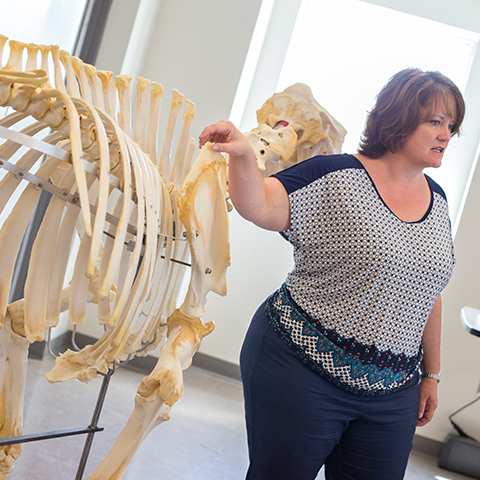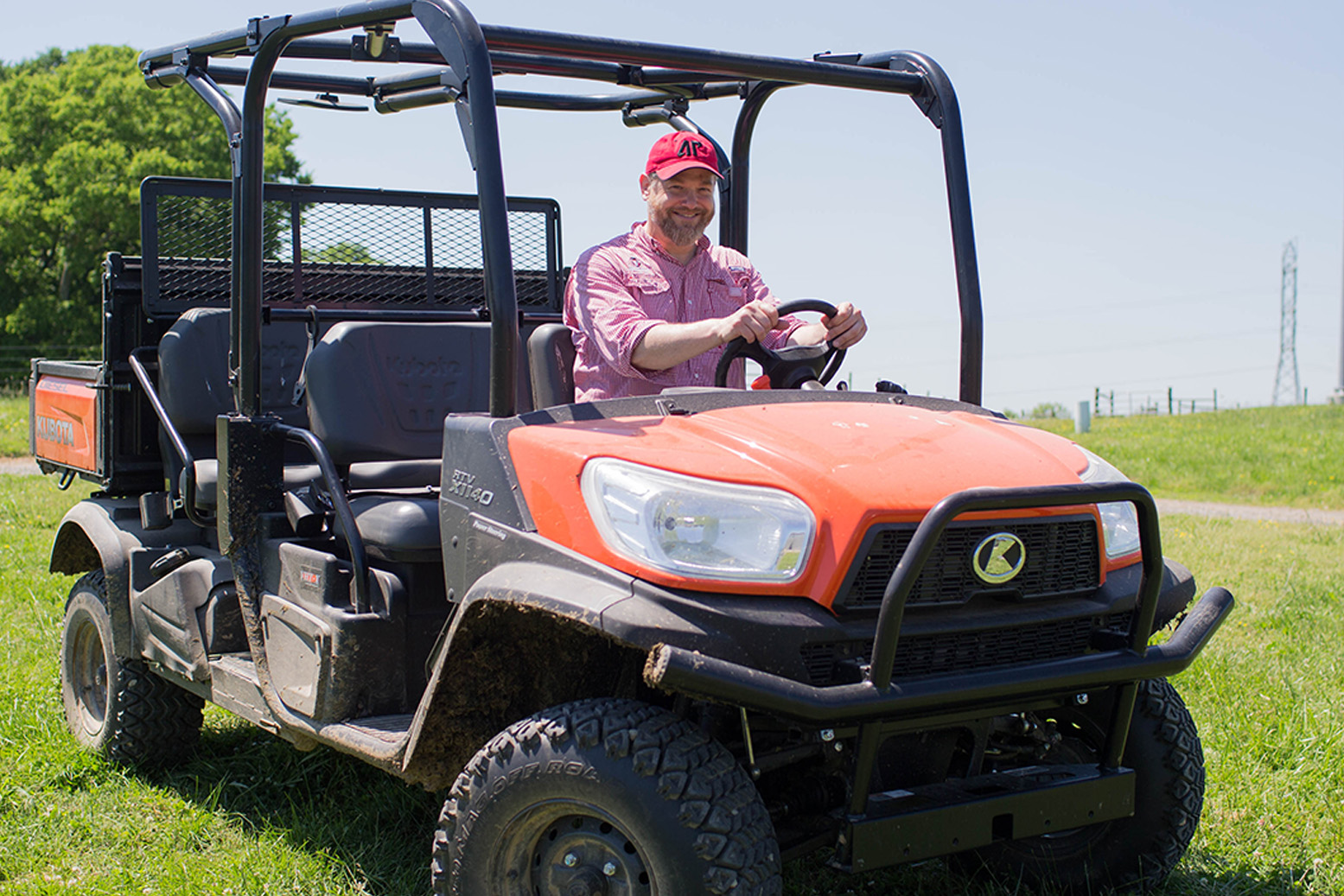Why study Veterinary Technology
Agriculture is one of the most important areas you could choose because it addresses a basic human need—food and other natural resources. The Veterinary Technology program at APSU provides the rigorous training to prepare students for employment in veterinary technology, one of the fastest growing career fields nationwide. The U.S. Department of Labor says job prospects for Veterinary technicians and technologists are excellent. Employment of veterinary technologists and technicians is projected to grow 20 percent from 2021 to 2031, much faster than the average for all occupations. Students who complete this program successfully will graduate with a BS, compared to most other programs that only offer an AS, and will be prepared to take the Veterinary Technology National Exam; a passing score is required in most states for licensure.
Veterinary Technology students will have a strong interest in animal science and husbandry, animal behavior, and animal health and disease. Most will have a passion for helping animals. Important qualities for a future vet tech to possess are:
- Communication skills. Veterinary technologists and technicians communicate with supervisors, other staff, and animal owners. A growing number of technicians counsel pet owners on animal behavior and nutrition.
- Compassion. Veterinary technologists and technicians must treat animals with kindness and must be sensitive when dealing with the owners of sick pets.
- Detail oriented. Veterinary technologists and technicians must pay attention to detail. They must be precise when recording information, performing diagnostic tests, and administering medication.
- Manual dexterity. Veterinary technologists and technicians must handle animals, medical instruments, and laboratory equipment with care. They need a steady hand for intricate tasks such as doing dental work, giving anesthesia, and taking x rays.
- Physical strength. Veterinary technologists and technicians need to be able to manage and lift animals.
Agriculture courses are delivered in small class settings with individual attention from faculty with experience and expertise in agriculture. Students have an opportunity for hands-on learning at the 440-acre University Farm and Environmental Education Center to study livestock, crops, forestry, wildlife and natural resources. The Veterinary Technology Concentration provides intensive study of the didactic and hands-on skills and knowledge needed to work competently as a veterinary technician including anatomy, physiology, microbiology, clinical techniques, pharmacology, anesthesiology, surgical and medical nursing, dental techniques, radiology, and clinical pathology training. Our concentration is initially accredited by the American Veterinary Medical Association Committee on Veterinary Technician Education and Activities. A 1:8 faculty to student ratio for live animal handling provides a thorough and focused learning experience.
APSU Agriculture faculty who teach Vet Tech students have a wide variety of expertise in such fields as: Animal Science, Veterinary Medicine and Veterinary Technology.
What Will I Learn
Veterinary technology students take coursework in veterinary technology, as well as agricultural, biological, and chemical sciences to prepare them for success in the veterinary technology licensure process.
Students will become proficient in these areas:
- Applied mathematics
- Biological science
- Communication skills
- Fundamentals of chemistry
- Anatomy and physiology
- Anesthesia, including induction, monitoring, and instrumentation
- Animal husbandry, including restraint, behavior, species and breed identification, reproduction, sex determination, and
- Human-animal bonding
- Biosecurity-safety and security issues
- Clinical pathology and parasitology
- Communication/interaction skills with clients and colleagues
- Diseases, preventive medicine (including dentistry), and nursing of companion animals, food-producing animals, horses, exotic species, and laboratory animals
- Economics in veterinary practice
- Ethics, professionalism, and legal applications in veterinary medicine
- Humane animal care and management
- Introduction to laboratory animal medicine
- Life-long learning concepts
- Medical terminology
- Microbiology and immunology
- Necropsy techniques
- Nutrition and principles of feeding
- Orientation to the profession of veterinary technology
- Pharmacology for veterinary technicians
- Principles of imaging, including radiography and ultrasonography
- Safety issues, consistent with the CVTEA Statement on Safety with course work emphasis on zoonoses and occupational safety
- Surgical nursing and assisting, including instrumentation
- Technician utilization and team concepts of health care delivery
- Value of professional organizations
- Veterinary practice management
At the completion of this program, students are expected to graduate from APSU with a B.S. in Agriculture, with a concentration in Veterinary Technology, and to be prepared to take the Veterinary Technology National Exam.
By graduating from an initially accredited concentration, and passing the VTNE, students would then be eligible for licensure in the state of TN.
Veterinary technicians often work in these places:
- Large Animal Clinics, Small Animal Clinics, Laboratory Animals and Research Facilities
- Exotics or Zoo Species Facilities
- Specialty/Referral Veterinary Practice
- Wildlife Rehabilitation Facilities
- Humane Societies and Animal Control Facilities
- Industry like pharmaceuticals, sales, research and development
- Teaching
- Agricultural Businesses
Veterinary Technology Application
Program Information
Veterinary Technology Program Requirements

